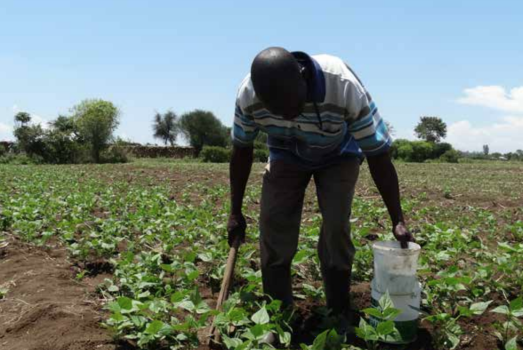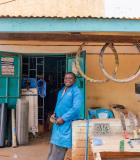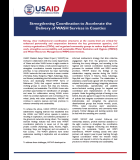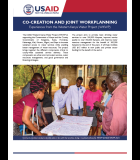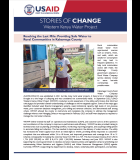Kenya Agriculture Value Chain Enterprises (KAVES)
KAVES aims to improve economic stability and food security by improving nutritional outcomes, providing WASH training, reducing chronic under-nutrition, building and diversifying sustainable value chains, and increasing productivity and incomes of 500,000 smallholders. The project works in 22 counties in high rainfall and ASAL areas.
Activity Description
The Kenya Agricultural Value Chain Enterprises (KAVES) activity works with smallholder farmers, businesses, and national and county government partners to address constraints up and down the value chain (such as agro-processors, input suppliers, transporters, exporters, retailers, financiers) and develop fully-functioning, competitive value chains. KAVES aims to increase the productivity and incomes of smallholder farmers, and other actors along the value chain, who are working in the dairy, maize (and other staples) and horticulture sectors. The activity works with more than 30 Kenyan government and private sector organizations including: Ministry of Agriculture, Livestock and Fisheries, county governments, Agricultural Sector Development Support Programme (ASDSP), Kenya Dairy Board (KDB), Kenya Plant Health Inspectorate Services (KEPHIS), Kenya Food Security Steering Group, Pest Control Products Board (PCPB), Horticulture Competent Authority Structure, Horticultural Crops Development Authority (HCDA), Kenya Agricultural Research Institute (KARI), public and private sector actors in the dairy, maize, and horticulture value chains. The activity develops smallholder enterprises that combine maize, high value horticultural crops and dairy farming to generate wealth, thereby enhancing food security, improving nutrition and increasing economic opportunities for women, youth and other vulnerable populations. Engagement with the private sector in a meaningful, comprehensive way ensures the sustainability of the activity’s work.
Expected Outcomes
The expect outcomes are an:
- Improvement of economic stability and food security;
- Improvement of nutritional outcomes, reduce chronic under-nutrition;
- To build and diversify sustainable value chains;
- Increase the productivity and incomes of 500,000 smallholders.
Actual Outcomes
The actual outcomes were:
- 332,457 total beneficiaries reached by project,
- Average milk yield for 44,246 dairy farmers rose from 7.76 to 9 liters per cow per day in this quarter,
- 16,207 households received nutrition and WASH training this quarter, bringing the project total to 81,035,
- Overall KAVES has surpassed the target set for beneficiaries reached during the quarter by percent.


